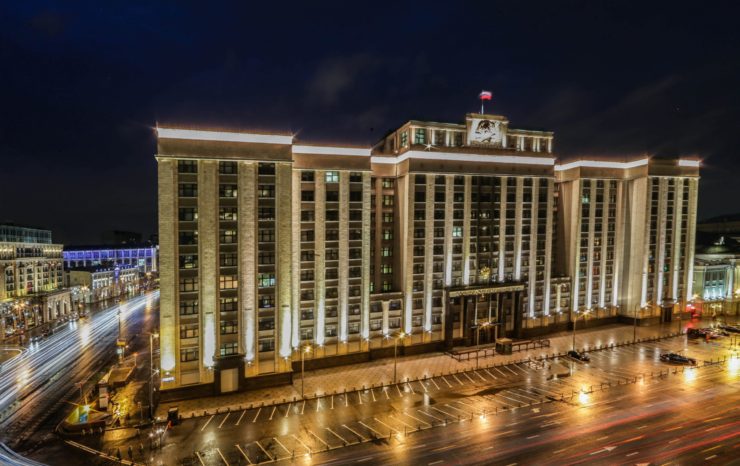
At a recent extended meeting of the Expert Council for the Development and Support of Comprehensive Partnership with African Countries, held in the State Duma, topical issues were discussed which can be divided into three groups: parliamentary diplomacy, assistance to Russian business in African countries, and Russia’s humanitarian mission.
Alexander Babakov, Deputy Speaker of the State Duma, emphasised in his speech that “the Expert Council is a tool that will not only unite the ideas that are discussed at the level of parliaments, but also involve in this process those people who are immersed in African issues, who understand and see that relations between the countries of this continent and Russia are moving to a broader plane”.
Indeed, the level of the invited experts was impressive: African scholars and parliamentarians who are in one way or another engaged in Africa, representatives of business, business circles, public organisations and various ministries and departments working with this continent.
Many right and important thoughts were heard. First of all – and many people have been saying this for a long time – Russia needs to find its own face in Africa. We must go to this continent with what Africans need from us, and this is, first and foremost, technology.
According to Irina Abramova, Institute for African Studies of the Russian Academy of Sciences, corresponding member of the Russian Academy of Sciences, Africa not only needs such raw materials as grain, but this country also needs to know how to grow such a crop and feed its people.
Continuing this thought, we can conclude that from a tactical point of view, it is certainly important for us to increase exports to Africa, but from a strategic point of view, taking into account the access to the largest market, we, as a country with a small population, can only support our prosperity by exporting technology.
In today’s reality, it is clear that in order to make a “good” entry into Africa, in order to strengthen cooperation, we need to improve the regulatory framework. Without this, it is difficult to talk about a competitive system of support for small and medium-sized enterprises, the creation of sectoral funds and direct investment funds, and many other things. Otherwise, we will continue to tread water and let China, India, Europe and the United States move ahead. And there is no time for wavering. For example, Igor Morozov, Chairman of the Board of Directors of AFROCOM, once again drew attention to the need to develop mechanisms to take into account natural resource concessions in investment projects and foreign trade deals, as he did in one of his speeches two years ago. It turns out that nothing has changed in this direction in the meantime.
By the way, the reports of many participants were not obligatory reports on the work done. The spokesmen reported openly about the problems they faced, were not afraid to criticise, asked questions, exchanged opinions and agreed on further cooperation and possible solutions on the spot.
There was also criticism of the deputies. According to Irina Antonova, not a single representative of the 17 groups of friendship and co-operation with Africa operating in the State Duma has visited the Institute of Africa, which she heads. And before developing something, one should study the subject well. In this case, consultation with specialists who have been dealing with this issue all their lives will not only improve their skills, but will also help save enormous funds.
The main outcome of the event held in the State Duma is the proposal to create a single centre for Africa, which is already overdue. Of course, we have the Expert Council, we have the Coordination Council at the secretariat of the Russia-Africa Partnership Forum. There are many other disparate, unconnected and parallel organisations and communities. Hence, there is a lot of duplication. What is needed is systematicness and coordination.
And one more important point. During the Expert Council, several concrete ready-made projects were announced, with which we can enter Africa right now, for example, the Pan-African telemedicine system with artificial intelligence and big data analysis.
And the next meeting of the Expert Council will show what of the previously said work has been started, what is being implemented, and what remains in the plans. The time for talking is over, it is time for action.
Yulia NOVITSKAYA, writer, journalist-interviewer, correspondent of “New Eastern Outlook“
